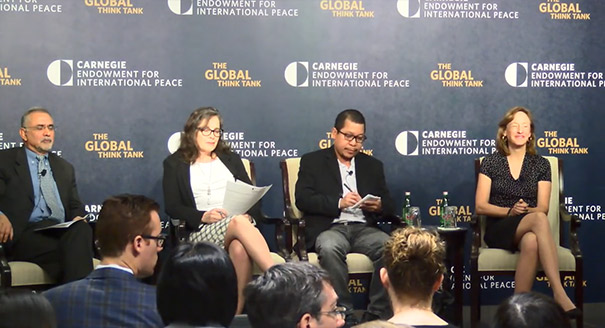Registration
You will receive an email confirming your registration.
By April 1 Myanmar will have elected its new president, heralding the end of over six decades of authoritarianism. But the new administration—burdened with high expectations, little administrative experience, and a looming military presence circumscribing its every move—faces daunting economic, social, and political challenges. Since general elections in November 2015, the political scene in Myanmar has changed rapidly, highlighting the complexity of the democratic transition taking place. Mary Callahan, U Aung Din, and Christina Fink made sense of these developments, examined their implications for the peaceful handover of power in April, and gave their assessment on what to expect in the aftermath. Carnegie’s Vikram Nehru moderated.
This event is part of Carnegie’s Myanmar Votes 2015 project, which is co-sponsored by the Asia Society Policy Institute and the Southeast Asian Studies Program of the Johns Hopkins University’s School of Advanced International Studies.
Mary Callahan
Mary Callahan is an associate professor in the Jackson School of International Studies at the University of Washington. Her research focuses on political reform in Myanmar.
U Aung Din
U Aung Din is senior adviser for Open Myanmar Initiative based in Yangon. A former political prisoner in Myanmar between 1989 and 1993, he was a founder of the U.S. Campaign for Burma.
Christina Fink
Christina Fink is a cultural anthropologist who is a professor of practice in international affairs at George Washington University’s Elliott School of International Affairs.
Vikram Nehru
Vikram Nehru is a senior associate in the Carnegie’s Asia Program. His research focuses on the economic, political, and strategic issues confronting Asia, particularly Southeast Asia.
